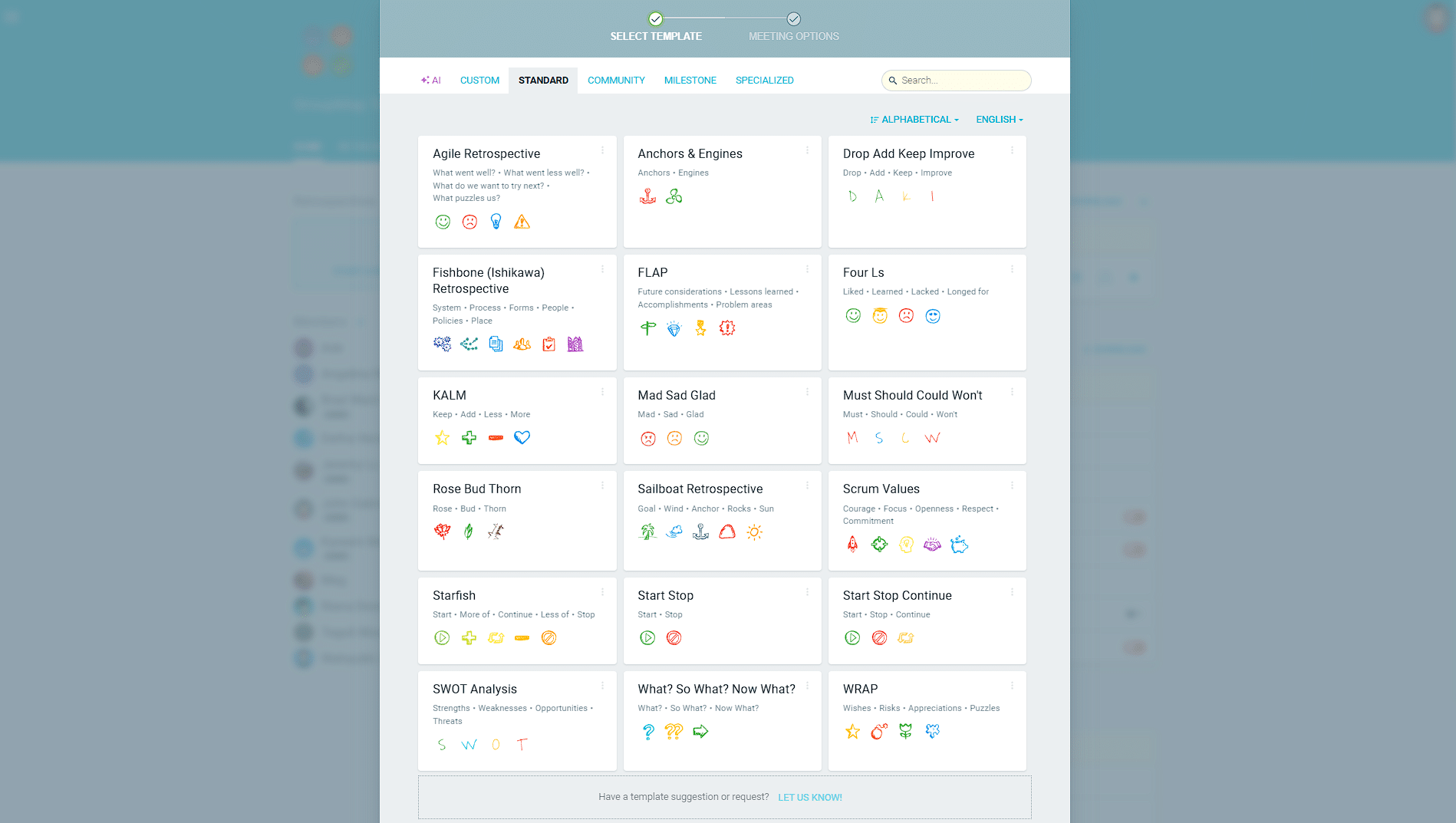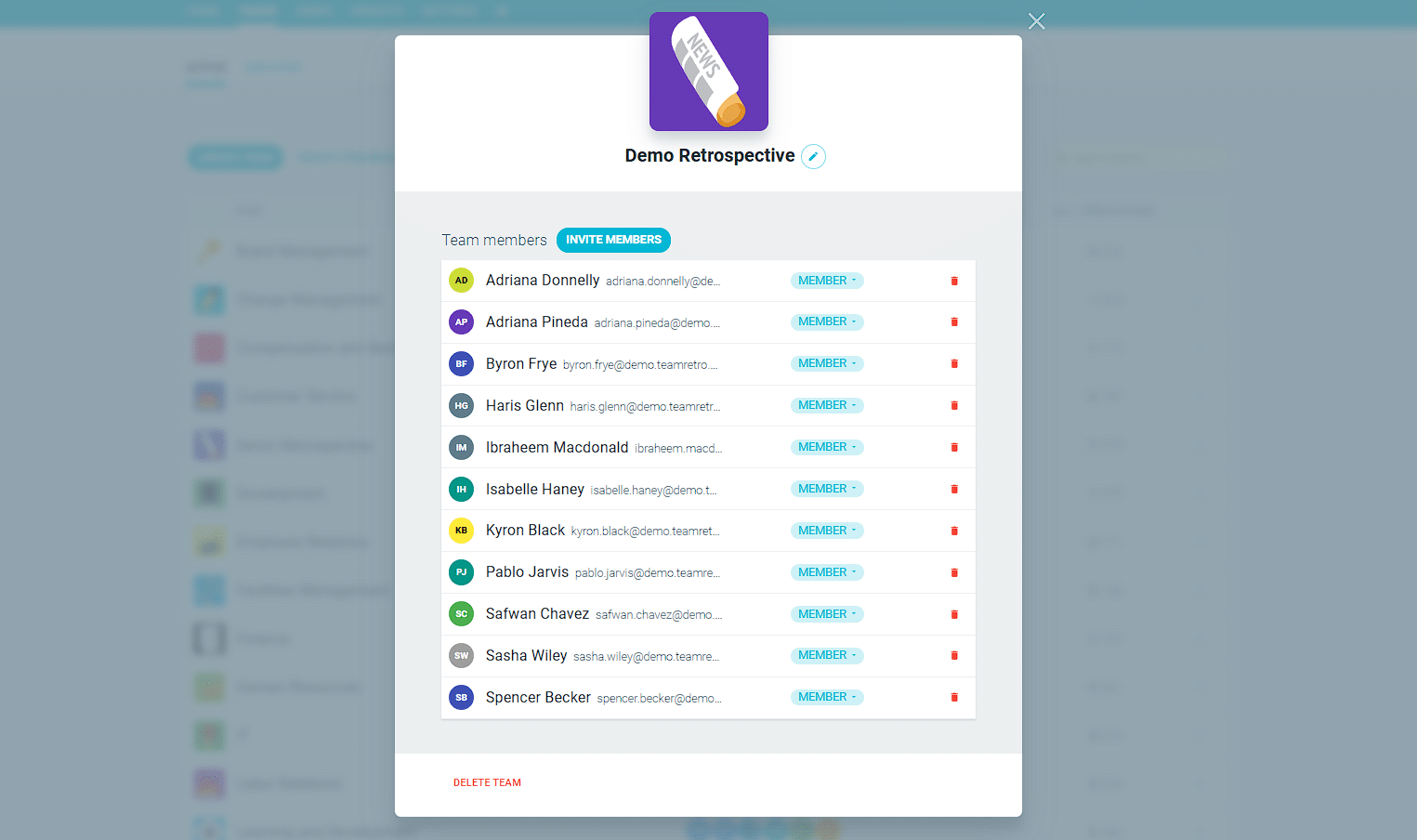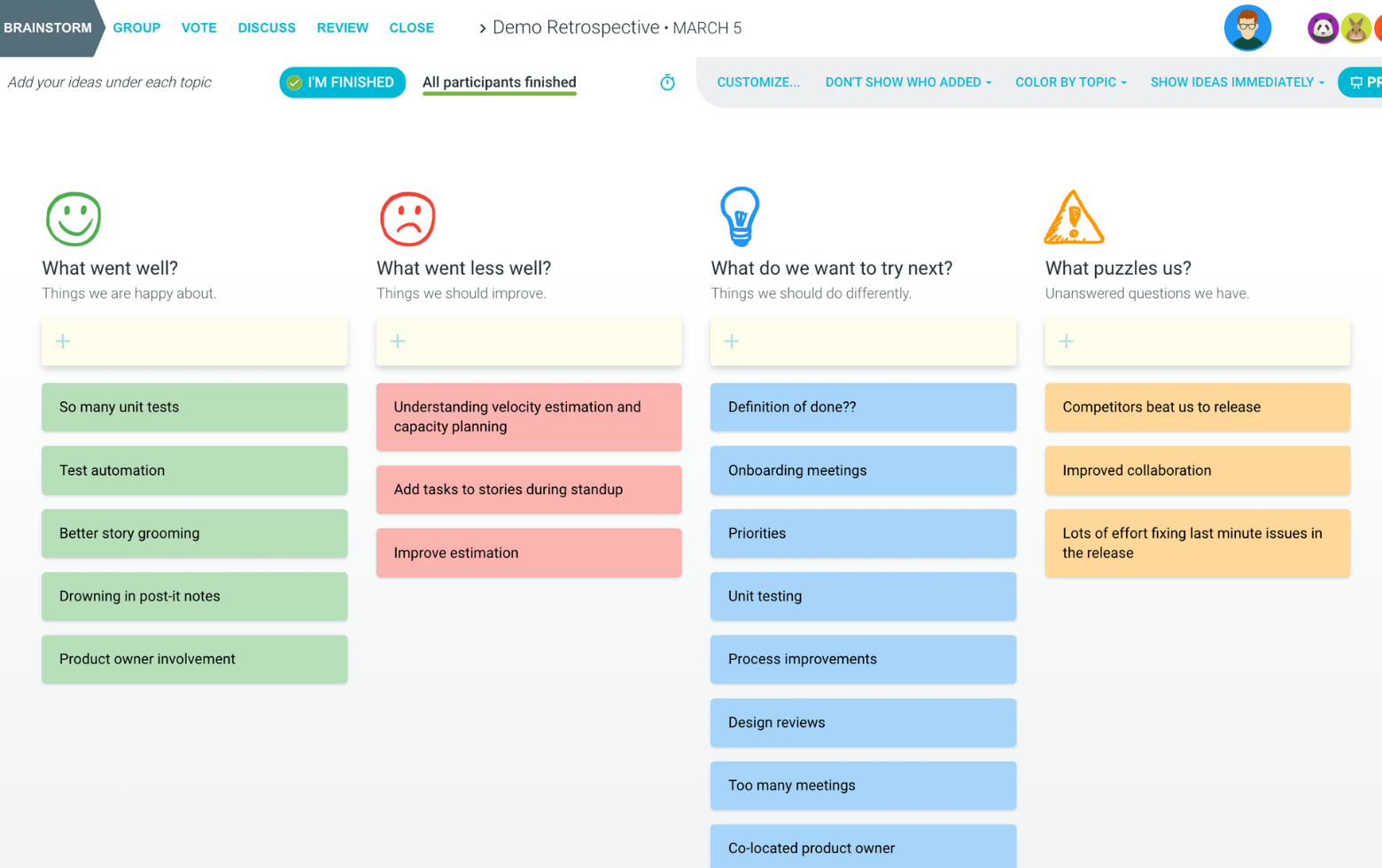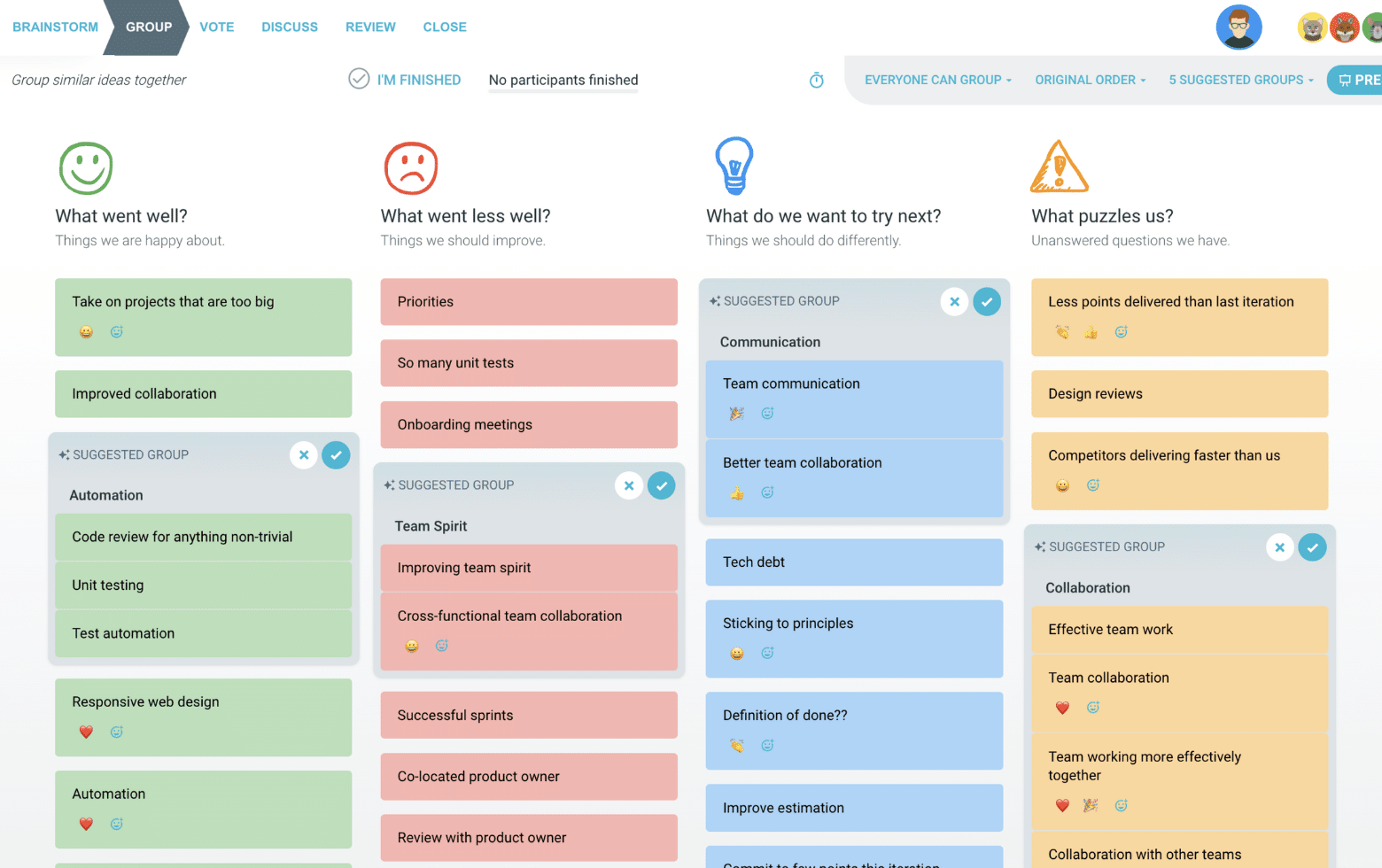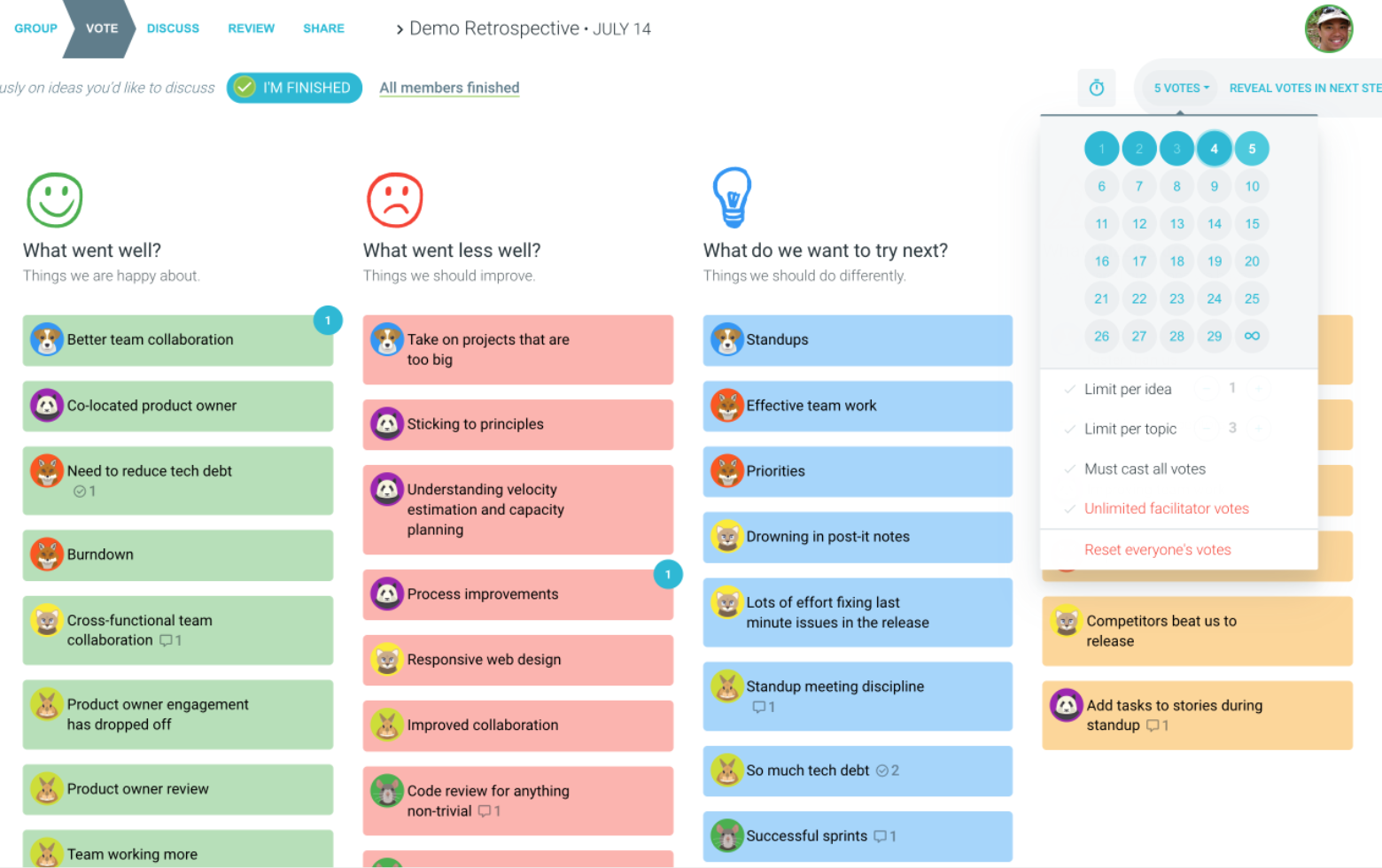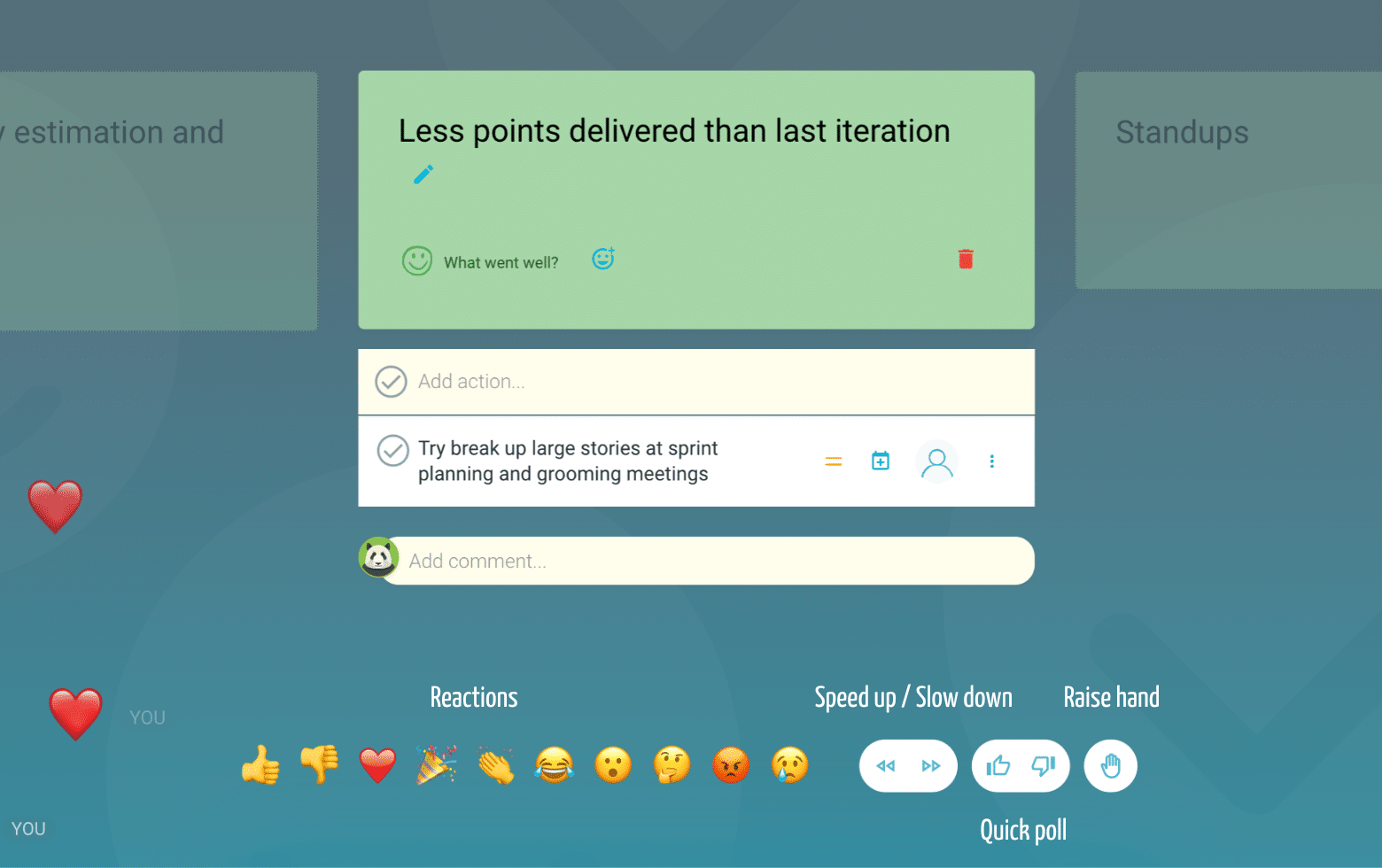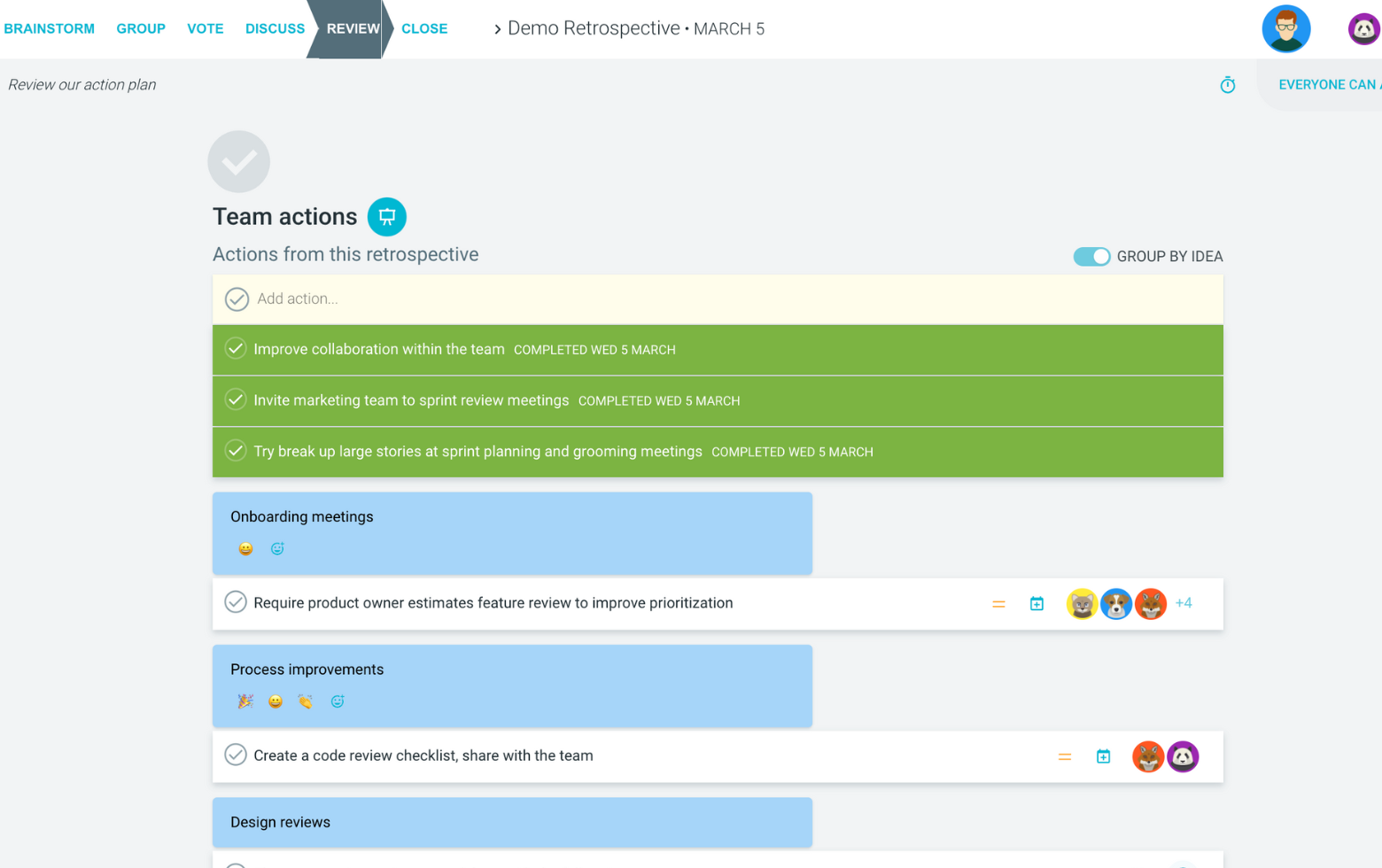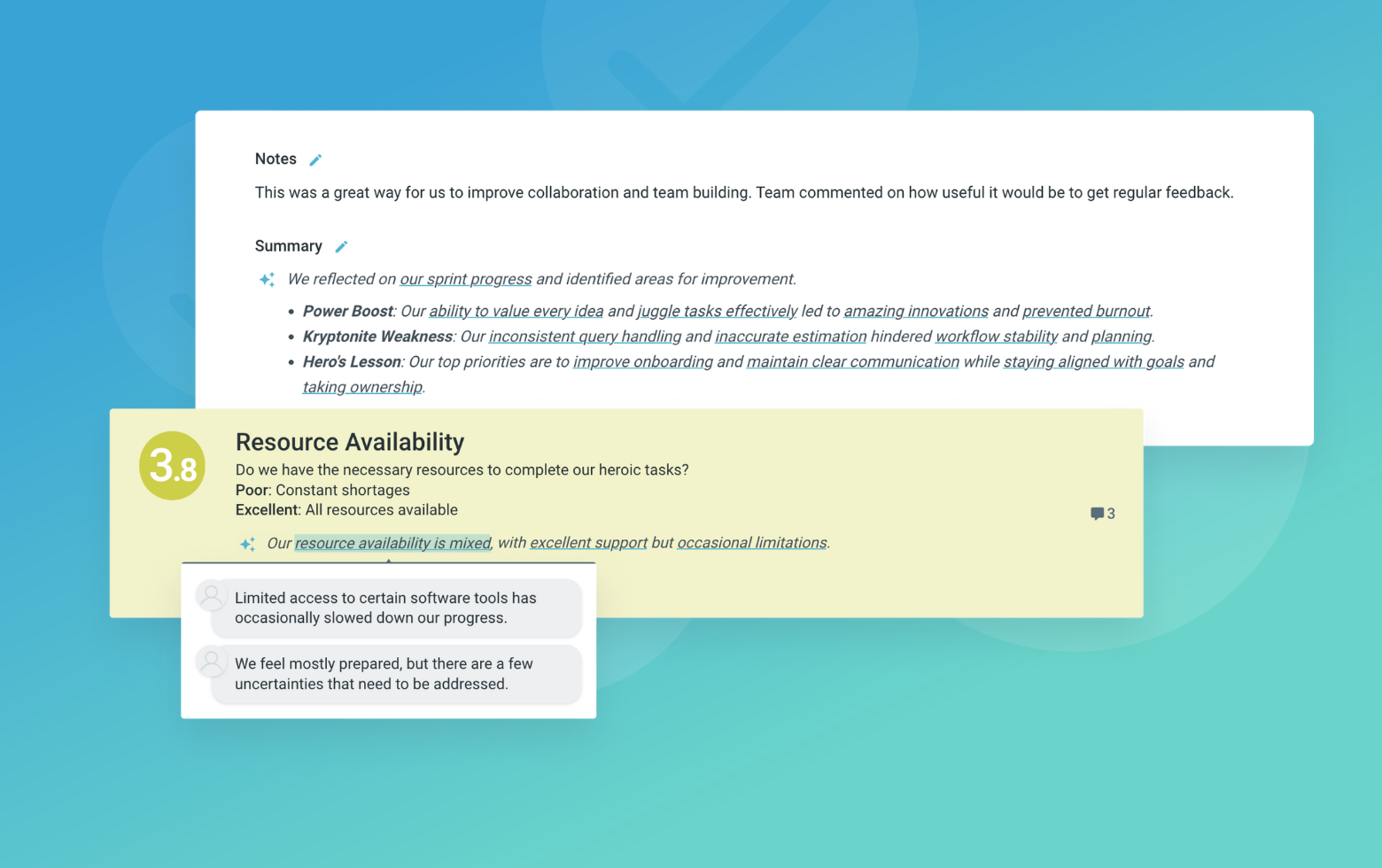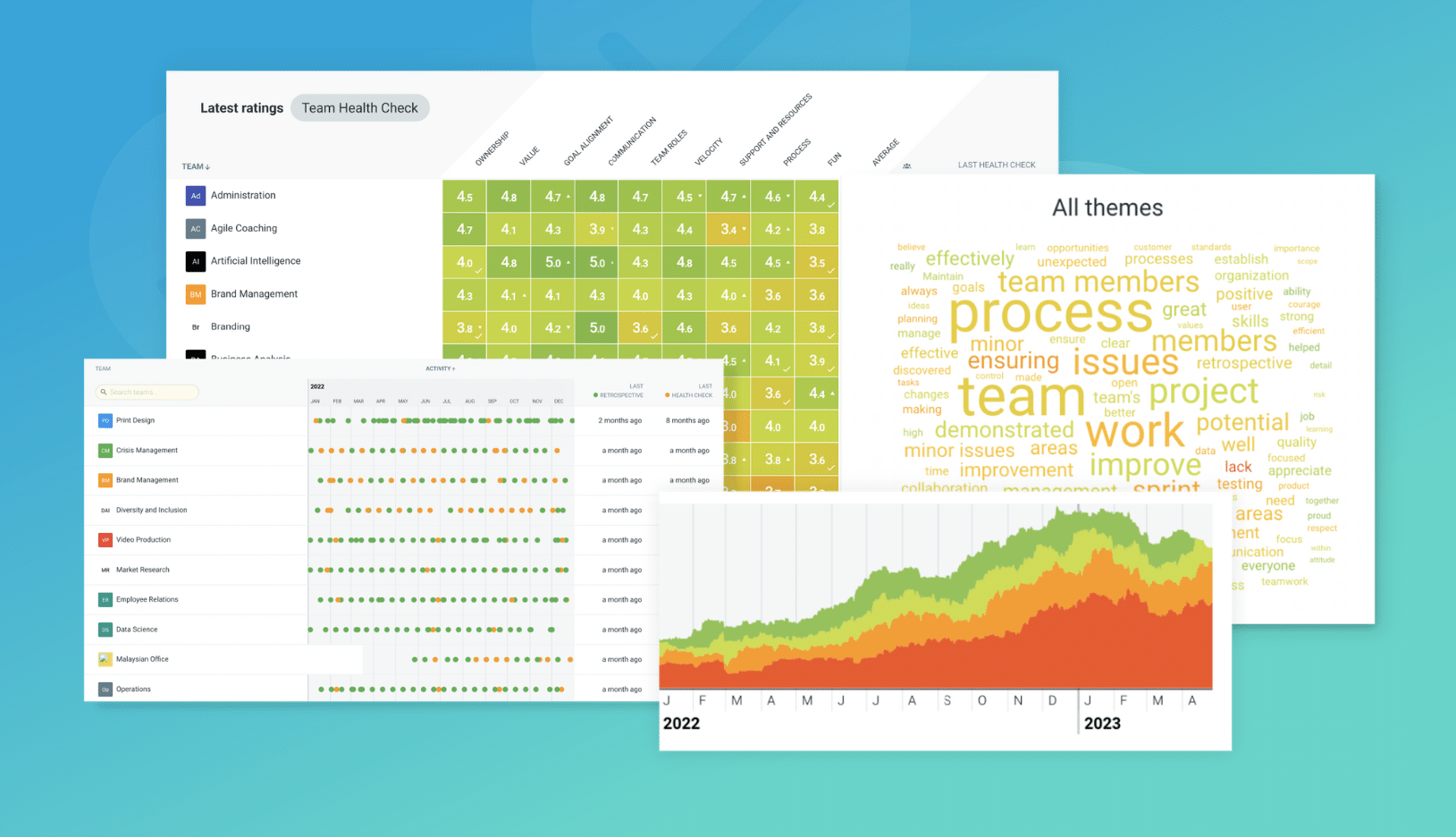The Scrum Values Retrospective is a focused session that helps teams evaluate and strengthen their alignment with the five fundamental values that form the foundation of Scrum: Courage, Focus, Openness, Respect, and Commitment.
This retrospective format encourages team members to reflect on how well they embody these values in their daily work and identify opportunities for improvement. By examining each value separately, teams can have meaningful discussions about their behaviors, challenges, and successes in living up to these principles.
Originally outlined in the Scrum Guide by Ken Schwaber and Jeff Sutherland, these values are essential for building trust, fostering collaboration, and creating a healthy team culture. This retrospective helps teams move beyond mechanical process adoption to embrace the true spirit of Scrum.
What is The Scrum Values
Courage
How do we tackle tough problems?
Courage in Scrum means facing difficult situations and challenges head-on. Encourage participants to share instances where they've shown courage or where they feel the team needs more courage. Look for examples of speaking up, admitting mistakes, or taking calculated risks.
Focus
How can we improve focus on our goals?
Focus refers to the team's ability to concentrate on current sprint work and project goals. Guide the discussion toward identifying distractions and ways to maintain better focus. Consider both individual and team-level focus challenges.
Openness
How do we stay open to new things?
Openness involves transparency about work, challenges, and opportunities for improvement. Encourage discussion about information sharing, willingness to try new approaches, and receptiveness to feedback. Look for ways to create a more open environment.
Respect
How do we respect each other?
Respect means acknowledging each team member's contributions and treating everyone as capable, independent people. Guide the discussion to explore how respect is shown (or could be improved) in daily interactions, decision-making, and collaboration.
Commitment
How can we make our commitments a reality?
Commitment in Scrum means dedicating yourself to team goals and continuous improvement. Focus the discussion on how well the team follows through on sprint commitments, process improvements, and personal development goals.
Suggested icebreaker questions
- Which Scrum value do you find easiest to practice and why?
- Share a recent moment when you saw a teammate exemplify one of these values
Ideas and tips for your retrospective meeting
- Encourage specific examples rather than general statements to make the discussion more actionable
- Use the Values Radar technique to visualize the team's current state for each value
- Create a safe space for honest discussion by acknowledging that living these values is a journey
- Consider discussing one value per day leading up to the retrospective to allow deeper reflection
- Document concrete actions for improvement for each value to track progress
- Use real scenarios from recent sprints to illustrate how values are being lived (or not)
.
How to run effective meetings with TeamRetro
Start Your Session in a Click
Log into TeamRetro and choose your template. Customise questions and the workflow to create your perfect retro for your team.
Create Your Team Easily – No Separate Accounts Needed
Brainstorm Individually – Free From Bias
Smart Grouping for Faster Insights
Fair, Flexible, and Fast Voting
Engage, React, and Capture Key Insights
Walk your team through ideas one by one with Presentation Mode. Stay in sync, spark real-time discussions, and capture feedback with comments, live reactions, and polls—all in one place.
Turn Ideas Into Action
Propose next steps with team buy-in, get AI-powered action suggestions, and keep everything in one place. Committed actions sync to your personal dashboard and integrate with your workflow tools—keeping you on track.
Save, Share, and Stay on Track
Get quick AI-powered summaries, add facilitator notes, and store retrospectives in your library for easy access. Schedule your next session and track published actions to keep your team accountable at the next retro.
Turn Team Data into Actionable Insights
Uncover trends, common themes, and key engagement metrics at a glance. Track sentiment shifts, analyze conversations, and monitor completed actions to drive continuous improvement.
